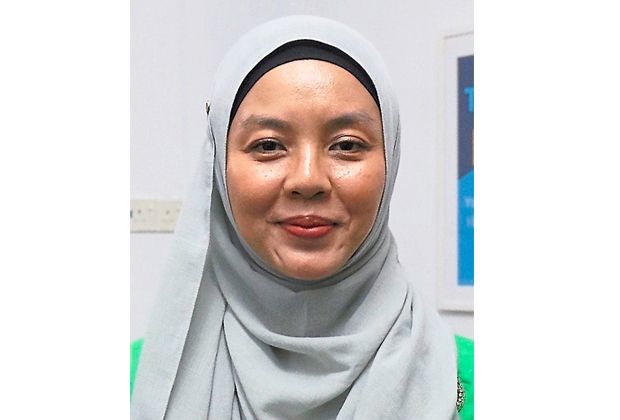JOHOR BARU: More Malaysians, some as young as 10, are in need of mental health support, reflecting a deeper crisis brewing beneath the surface.
Mental Illness Awareness and Support Association Malaysia (Miasa Malaysia) founder and president Anita Abu Bakar (pic) said there has been a surge in minors seeking help via their 24-hour crisis helpline.
“This signals the growing emotional distress faced by the country’s youth, often brought on by bullying, body shaming, peer pressure and social media expectations.
“We have seen a significant increase in young people reaching out, especially through WhatsApp.
“Many of them, including teenagers, are expressing suicidal thoughts and self-harm,” she said in an interview.
Anita added that youths who reached out to Miasa Malaysia also expressed that they are still trying to figure out who they are while navigating some heavy emotional challenges – and they do not know how to communicate it to their parents, who also tend to dismiss their feelings.
She said her organisation is handling over 2,000 calls and messages a month, adding that the callers mostly faced anxiety, depression, psychosis, suicidal ideation and even pleas for food and shelter.
“We do our best, but because we are a volunteer-based helpline, we can only respond to about 65% of the cases,” she said, noting that around 80% of those who reached out are from the B40 income group.
Apart from lending a listening ear, the trained volunteers also follow up with callers and recommend accessible interventions such as arts-based therapy, peer support groups and community workshops in music, dance or speech.
Anita, who founded Miasa in 2017, said she knows what it feels like to be lost in the dark as she was diagnosed with a mental health condition 11 years ago.
“I spent two years searching for help and information as mental health was very much a taboo topic back then.
“I remember the desperation, the hopelessness and that is partly why I started Miasa so that no one should have to go through it alone,” she said, adding that the non-governmental organisation runs on a lived-experience model where most of its volunteers have gone through their own mental health struggles.
“Miasa Malaysia’s activities include empowering people to take ownership of their lives because mental health symptoms often rob them of this,” she added.
She pointed out that the battle is not just limited to providing services – it is also about breaking deep-rooted stigma.
“Even after nine years in this field, mental illness is still misunderstood.
“There are so many misconceptions and for people who are already suffering, being judged or dismissed only makes things worse,” she said.
She added that Miasa Malaysia recently opened a new clubhouse in Johor Baru, adding to its Kuala Lumpur headquarters and Terengganu branch and Anita hopes to establish more such spaces across the country.
She urged for stronger government support, pointing out that community-based mental health NGOs like hers help complement the Health Ministry’s efforts to serve vulnerable groups.
Despite the daily challenges, Anita said it is the little moments of connection that keep her and her team going.
“There was a woman who contacted me recently to say thank you because of a message that I sent her four years ago during one of her darkest moments.
“She told me that one small message helped her turn her life around and she is doing well now – it reminds me that just one act of reaching out can change a life,” she said.
“I want others to know that they are not alone as help is always there – you just have to take the first step.”
Their 24-hour crisis helpline, which was launched four years ago with support from Yayasan Sime Darby, is available at 1-800-180-066 and WhatsApp support line at 03-9765 6088.
